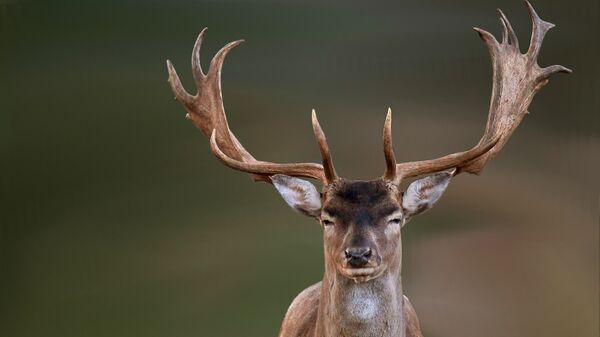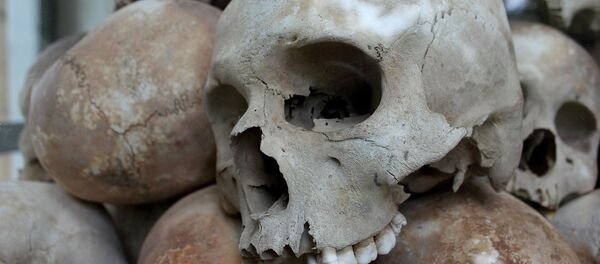The chilling discovery was made when researchers at the 26-acre Forensic Anthropology Research Facility (FARF) in San Marcos, Texas, were conducting an equally grisly experiment. Seemingly monstrous things often must be done in the name of forensic science — in order to optimize crime-solving and corpse identification techniques, dead bodies are often subjected to violent attacks, left in controlled conditions to rot, and other morbid applications.
I guess the taste for human flesh has spread to Pennsylvania; look at this bloodthirsty doe! https://t.co/1yGgV0LMX4 #whoseatingbambi pic.twitter.com/GcBUMUPVX3
— PA Deer Research (@WTDresearch) May 5, 2017
The FARF center is specifically devoted to the study of decayed human remains. In July 2014, staff left a body in a wooded part of FARF, in order to see how different scavenging animals left their mark on human remains.
On January 5, 2015, the camera detected a young white-tailed deer perched near the skeleton, gnawing on a human rib bone. The team initially thought the meal might've been an accidental one-off, but eight days later it was visited by the same creature.
The event was particularly shocking as deer are largely omnivorous, only occasionally seeking out flesh to reap its constituent minerals, (such as phosphorus, salt, and calcium) lacking from their normal vegetarian fare. Nonetheless, when they find a suitable dish, they strip it dry, the zigzag motions of their jaws leaving behind a "stripped, forked pattern in the bone."
Human flesh mush be an extremely rare delicacy to the carnivorous part of the animal kingdom. Just glad I'm wanted by something, somewhere 😏
— alexia katsaros (@alexiagracek) April 12, 2017
However, there's no need for panic — ungulates, the mammal group home to deer, only seek out dry bones of long-dead animals, in particular bones with a rectangular cross-section. By contrast, carnivores seek out fresher remains and leave punctures and pits in the bone. However, it's well-established that once animals get the taste for humans, they find it difficult to give up the habit — human blood has more salt than animal blood, and can be quite addictive.
In fact, humans are so tasty to the animal palate, their typical diet ceases to cut the mustard — although on the upside, it's rare such animals are in an environment offering a steady flow of human prey, and they die out quickly as a result.



